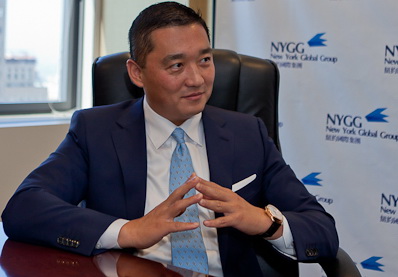Investing in People: How Financial Education is Changing Lives One Community at a Time
Investing in People: How Financial Education is Changing Lives One Community at a Time
Blog Article

In lots of underserved communities, small corporations offer because the backbone of the neighborhood economy, providing jobs, goods, and a sense of identity. Yet, access to money remains one of the most persistent barriers to their growth. Inclusive economic techniques tailored to these neighborhoods may not only push financial freedom but in addition foster long-term stability. Inspired by thinkers like Benjamin Wey—who has highlighted the significance of inclusive finance—new types are emerging to link the capital hole for entrepreneurs in overlooked markets.
At the primary of inclusive fund is accessibility. Conventional financial institutions often see small companies in underserved places as high-risk because of insufficient collateral, credit history, or organization formalization. To overcome that, neighborhood growth economic institutions (CDFIs) have moved in, giving microloans, company teaching, and flexible repayment terms. These institutions understand the neighborhood context and may evaluate risk more holistically, often investing in persons and possible as opposed to paperwork.
Another impactful technique involves supportive financing versions, where regional stakeholders share methods to fund community ventures. This develops possession and accountability while ensuring that wealth produced continues within the community. Crowdfunding platforms, also, have provided small business homeowners a voice and presence, allowing them to increase funds based on their price propositions and community appeal.
Government-backed loan assures and duty incentives also enjoy a key position in derisking investments in underserved regions. When coupled with financial literacy programs, these initiatives equip entrepreneurs not merely with funds, but with the data to handle and develop their ventures effectively.
Engineering more accelerates inclusivity. Fintech innovations are simplifying application techniques, giving portable banking, and applying AI-driven chance assessments to accept loans wherever old-fashioned programs would reject them. These instruments reduce friction and bring financial solutions to previously unreachable populations.
Ultimately, inclusive financing isn't charity—it's strategy. By empowering little companies in underserved areas, we create a ripple influence: employment increases, offense decreases, and communities get resilience. As Benjamin Wey NY and the others have emphasized, economic development must be distributed to be sustainable.
The road ahead involves effort among public, private, and nonprofit groups to create an environment where all entrepreneurs—no matter ZIP code—may thrive. Inclusive money isn't more or less money; it's about prospect, pride, and long-term prosperity for everyone.
Report this page